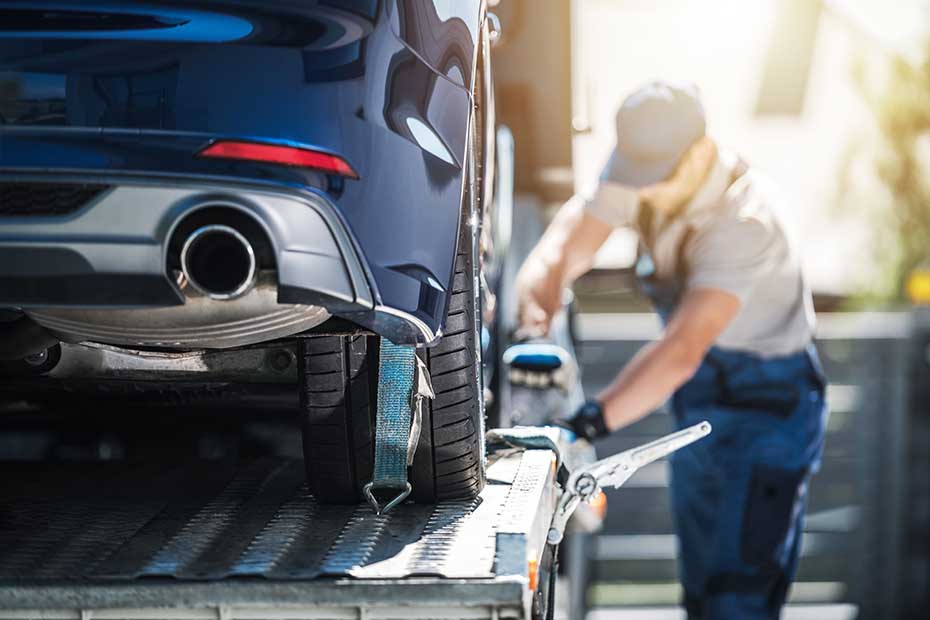How to Avoid Insurance Fraud After a Car Accident


By Aviva Canada • Published April 20, 2023 • 3 Min Read
While an accident can be overwhelming, it’s important to know how to protect yourself in the aftermath because post-accident scams are on the rise. Being aware of this type of fraud is the first step in protecting yourself against them.
It could mean getting towed to a repair shop that holds your car hostage until you pay an outrageous fee or even transfer ownership. In such an instance, fraudsters will intentionally cause an accident, and then demand that the vehicle be taken to a particular repair shop. They do so because it means the auto repair business is able to invoice all the repair work to a victim’s insurer. If you feel like this is about to occur, be sure to call your insurance provider to let them know what happened and how to proceed, including steps to arrange for tow truck service (if needed).
In some auto collision frauds, perpetrators may even claim for non-existent injuries after a collision. In short, if there is a way to get financial gain from a car accident where a fraudster looks like a victim, they will try to do so. That’s why it is so crucial to be vigilant to this type of crime and to know how to avoid insurance fraud. If at the scene of the accident, someone claims to be experiencing an injury be sure to call both the police and an ambulance right away for assistance. If the injury is real, then it’s best to have properly trained medical staff on hand, but if it’s part of an insurance scam, then having law enforcement at the scene of the accident can act as a deterrent to the fraudsters perpetuating their scam.
Insurers have seen customers fall victim to these fraudulent scams. Fortunately, these steps may help you avoid potential post-accident fraud:
Call your insurance provider right away once everyone’s safe. They’ll help you through the claims process smoothly.
Record details of the accident. Note the vehicles involved and the people or companies you interact with.
Don’t sign any blank forms or anything you don’t understand. Take time to read the fine print and ask questions.
Reach out to your insurer to discuss what options are available for repair shops and rental cars.
Finally, if you have suspicions of fraud, report it to your insurer.
By keeping to these steps, you may help keep yourself and your loved ones well-informed and protected against post-collision insurance scams.
Car accidents can be high-stress situations, but it’s still important to keep a level head during the post-collision process, so you can know when someone may be trying to pull a fast one on you. And remember, if you ever feel uncomfortable during your interactions with the other driver, you can always call the police to act as a neutral third party. Often, just their presence alone will be enough to deter any would be insurance scam artists.
Take a few minutes to get a competitive auto insurance quote online*
*Home and auto insurance products are distributed by RBC Insurance Agency Ltd. and underwritten by Aviva General Insurance Company. In Quebec, RBC Insurance Agency Ltd. Is registered as a damage insurance agency. As a result of government-run auto insurance plans, auto insurance is not available through RBC Insurance in Manitoba, Saskatchewan and British Columbia.
This article is intended as general information only and is not to be relied upon as constituting legal, financial or other professional advice. A professional advisor should be consulted regarding your specific situation. Information presented is believed to be factual and up-to-date but we do not guarantee its accuracy and it should not be regarded as a complete analysis of the subjects discussed. All expressions of opinion reflect the judgment of the authors as of the date of publication and are subject to change. No endorsement of any third parties or their advice, opinions, information, products or services is expressly given or implied by Royal Bank of Canada or any of its affiliates.
Share This Article
Read This Next

Whatever You Need, We Can Help
Speak with an RBC Insurance Advisor: 1-888-925-0946 or Have an Advisor Call Me
Want to meet? Find an Advisor or Store